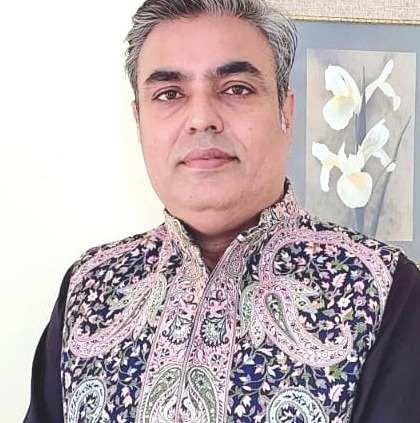The True Cost of War: A Wake-Up Call for the Global South

By: Shariq Maqbool
War has long served as a strategic instrument for powerful nations to preserve dominance, protect economic interests, and expand geopolitical influence. In today’s global landscape, this reality remains painfully evident, particularly for the Global South, where the consequences of conflict are often the most severe. The current escalation between Israel and Iran has once again brought the world to the edge of a larger conflagration, threatening global peace and stability. If such hostilities remain unchecked, the possibility of a Third World War can no longer be dismissed—a war that would yield only widespread destruction and human suffering.
It is a mistake to believe that wars erupt spontaneously. More often, they are deliberately provoked. Instability serves as a convenient backdrop for certain global actors to pursue their strategic and commercial objectives. The arms industry, among the most lucrative sectors globally, thrives on the perpetuation of violence. Peace, in this equation, becomes inconvenient. The irony is unmistakable: the same countries that champion democracy and human rights are frequently the largest exporters of arms to conflict-ridden regions, enabling chaos while preaching morality.
For decades, regions such as the Middle East, Africa, and parts of Asia have borne the brunt of manufactured conflicts and proxy wars. The recent attacks by Israel on Iranian targets only add to this troubling legacy, raising the stakes and pushing the world closer to a dangerous tipping point. Iran’s vow to retaliate creates a perilous cycle, one that history has repeatedly shown leads not to resolution, but to greater devastation—until, eventually, all sides are compelled to return to the negotiating table.
Amid this growing global unrest, there is a critical lesson for India and Pakistan. These two nuclear-armed neighbors have remained trapped in a cycle of mistrust and hostility for decades, investing enormous sums in military capability while millions of their citizens continue to struggle for basic needs. Resources that could transform lives through education, healthcare, and infrastructure are instead diverted to fund an arms race driven by mutual suspicion and historical grievances.
The pressing question remains: what has any war ultimately achieved? The pattern is always the same—destruction, loss, and finally, negotiations. From Iraq and Afghanistan to Libya and Syria, the outcomes are tragically familiar. If diplomacy is the inevitable destination, why not begin the journey there, instead of after irreparable loss? India and Pakistan must not allow external influences or domestic pride to dictate an adversarial future that benefits no one.
It is time to reject the false security offered by militarization and embrace a future rooted in cooperation. Rather than importing weapons, both nations must begin importing ideas, knowledge, and innovation. Rather than constructing bunkers, they should be building schools and hospitals. War does not bring prosperity—it only deepens poverty, prolongs suffering, and stalls development. The true path to progress lies in bilateral engagement, grounded in mutual respect and regional ownership of peace initiatives.
History should remember us not as nations that succumbed to division and conflict, but as ones that had the wisdom to choose peace over provocation, diplomacy over destruction, and unity over hostility. At a time when the world teeters on the edge, let us summon the moral courage to forge a better, more hopeful future—together.
The author is the Spokesperson of the Policy and Research Institute, Srinagar, Jammu and Kashmir.




Leave a Reply
Want to join the discussion?Feel free to contribute!